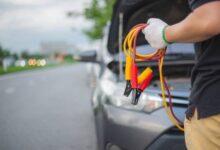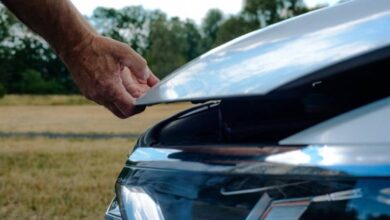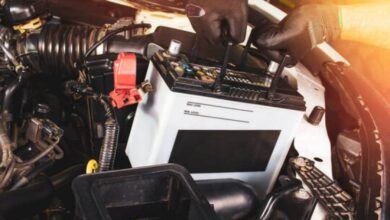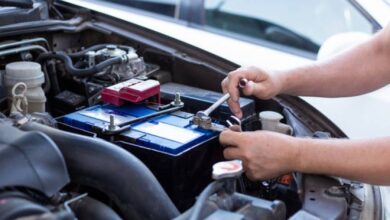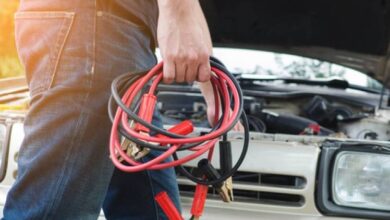Can A Car Battery Get Wet Forever?
Last Updated on July 25, 2022 by Thomas James
Car batteries are one of the oldest batteries globally and have been used for centuries in various forms of transportation. We take car batteries for granted, and many people think that a car battery has a limited life of only a few months. It is not always the case; car batteries can last up to a few years, and they are usually pretty easy to replace. However, there are times when a car battery can get wet, and the inside components can become damaged.
Many people don’t know what happens when water enters a car battery. It may be an uncomfortable question for many, but you need to know the answer before driving away from your house. Did you know that a car battery can get wet? However, water does not just enter the battery under normal circumstances. If a car battery is submerged underwater for an extended period of time, the water can get into the battery and cause damage. So to avoid long-term damage, it is essential to know what happens when water enters a car battery. This blog post answers the question, “Can a car battery get wet.”
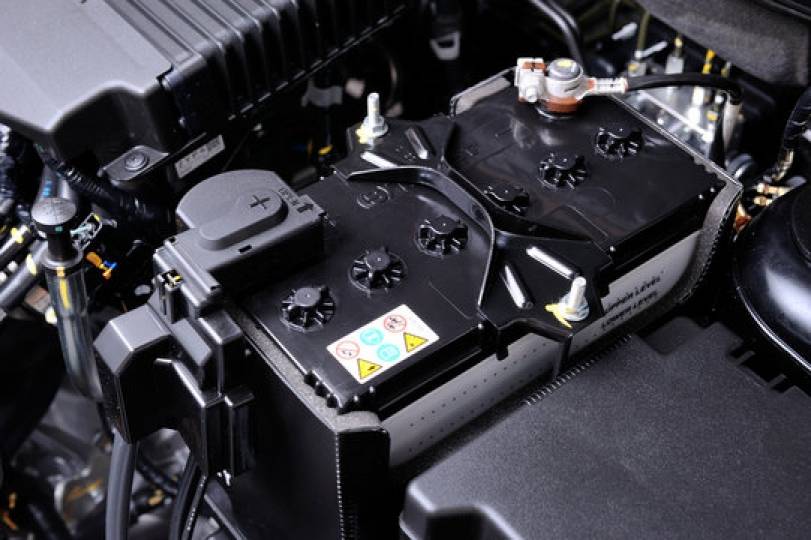
Can A Car Battery Get Wet?
Car batteries are designed to hold a charge for a long time. In fact, most car batteries are designed to hold a charge for several years. However, some car batteries are designed to hold a charge for only a few months. If you use a car battery that holds a charge for only a few months, you may be surprised to find out that it can get wet. It is because car batteries are made of several components that are susceptible to water damage.
The first thing that happens when a car battery gets wet is that the electrolyte (solution of salt and acid) is diluted. When a car battery is used, the acid and salt are mixed to form the electrolyte.
Because the battery case is made of polypropylene resin, which keeps water out, if you remove your car battery and leave it outside in the rain, the terminals and lid where water would usually be added are more vulnerable to water damage.
Effects of Water on the Car Battery
When a car battery is submerged in water for an extended period of time, the electrolyte is diluted. The diluted electrolyte has a higher pH value. If the pH value of the electrolyte is high enough, it will cause the zinc and zinc oxide to react with the acid. It will cause corrosion of the battery. If you think your car battery is not corroded, you should not be alarmed. Corrosion is a natural process that occurs when there is a lot of water in the battery.
As a result of corrosion, the battery is not safe to use. You should never use a car battery that has been submerged in water for a long period of time. It is also not safe to use a car battery that has been in contact with water for a long period of time. If you do not know what has happened to your car battery, you should contact your local battery shop or auto parts store.
Metal, not pure water, is an electrical conductor! On a rainy day, the metal leads connected to the terminals are just as safe as they are on a sunny day.
You can also charge your car battery and install a car battery safely while it’s raining. However, keeping it covered may be necessary because your car battery charger may not be waterproof.
When My Car Battery Is Wet, What Happens?
If your battery gets wet, it will do nothing for the most part. Your car battery is made to keep water out, so nothing should be able to get inside.
There are two types of car batteries: sealed and vented.
Sealed batteries have a sealed case that keeps the water out. They are used in older cars that have sealed cases. Sealed batteries are not affected by water because they are sealed.
Vented batteries have a vent that allows water to enter the battery. They are used in newer cars that have vent caps. When your battery is wet, it will not cause any problems. If you have a sealed battery, the battery will not leak. If you have a vented battery, the battery will be fine.
Water is unlikely to cause any damage to your battery in the long run. When you’re out in the rain or continuing to drive through muddy water, you wouldn’t have much to worry about.
Frequently Asked Questions
Q: Will my car battery hold a charge if it gets wet?
It depends on the type of battery you have. If your battery is sealed, then it will be fine. If your battery is vented, then it may cause some issues.
Q: Is my car battery safe if it is wet?
Yes. Water is not an electrical conductor, so there is no risk of corrosion.
Q: What happens if I drive on a rainy day?
Yes, you can. However, if you are in a situation where your car battery is wet, it may not be safe to drive. You are more likely to get a flat tire than a problem with your battery.
Q: Is it water damaging the car battery charger?
Yes! Your car battery charger is not waterproof. It will cause problems.
Final Verdict
Just a quick reminder that your car battery can get wet. The saltwater commonly used in the ocean can cause corrosion on the battery’s terminals, making the battery no longer charge. If this happens, it is recommended that you replace your battery. The battery can still work well if it stays dry, but it can’t be serviced if it’s wet. In the end, it is a good idea to check the battery’s condition before starting your car. If you see that the battery is loose, it is best to change it. Thank you for reading!



